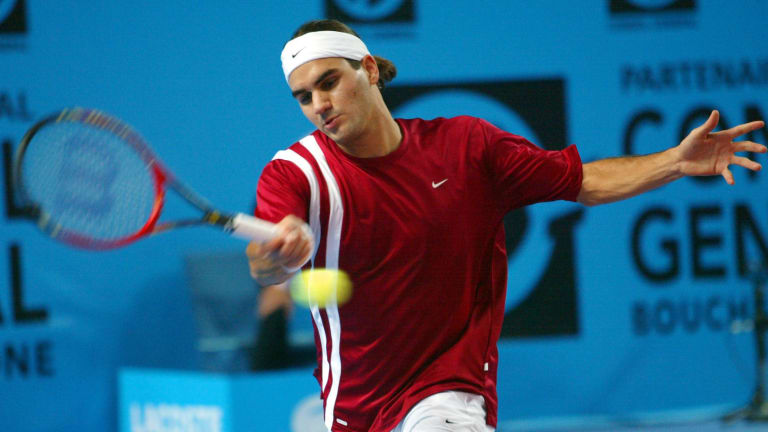There's no picture from the match on Getty Images. There's no clip of it on YouTube, or even from a videos search on Google. And on the surface, the result feels relatively inconsequential.
Roger Federer's 6-2, 7-6 (6) final-round win over Jonas Bjorkman in Marseille, on February 16, 2003, was the Swiss' fifth career title (ninety-eight more would follow). It wasn't his first trophy earned on a hard court, or indoors. It was his second of five career wins over Bjorkman, who would finish his career 0-13 in sets against the Swiss superstar.
But there are two reasons this match resonates today, even if it's been lost among web content and is hardly a milestone in Federer's illustrious CV.
First, it kicked off a five-year stretch, from a title-winning perspective, that turned the tennis world on its ear. From 2003 to 2007, Federer would win 49 tournaments—nearly half his eventual haul. In each season, he never won less than seven titles. This championship run (which included a victory over Raemon Sluiter, shown below) marked the beginning of that stretch of nearly unchallenged dominance.
